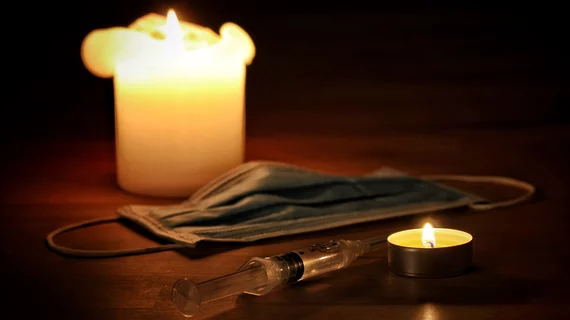Pioneering neuroradiologist John Bentson dies from complications due to COVID-19
Pioneering University of California, Los Angeles, neuroradiologist John Bentson, MD, has died from complications due to COVID-19 at the age of 83.
He treated patients during the nascent days of the subspecialty in the 1970s, using new technologies such as CT imaging. Back then, tools used to inject contrast dye for brain imaging were rigid and could potentially harm patients. But Bentson invented his namesake guidewire to address this problem, an innovation still used today, the New York Times reported Friday.
“He liked to push boundaries if he thought he could help the patient,” his daughter, Erika Drazan, told the publication. “He liked saying that the vessels in the body are just like a tree, and that he could get where he wanted through them by feel.”
Since then, thousands of patients have benefited from the Bentson Wire Guide, according to the American Society of Neuroradiology, manufactured by Cook Medical. He never did patent the invasion nor profit greatly from it, but Drazan said he found joy in knowing it helped patients.
Bentson earned his medical degree from the University of Wisconsin-Madison and served as a radiologist in the U.S. Army in South Korea. By 1969, he joined the UCLA Medical Center, rising to chief of neuroradiology a few years later and holding the position for 30 years after that. He vacated the title in 2002 and continued practicing until retiring in 2014. Bentson died in an L.A. hospital on Dec. 28.
Read more from the New York Times below.

